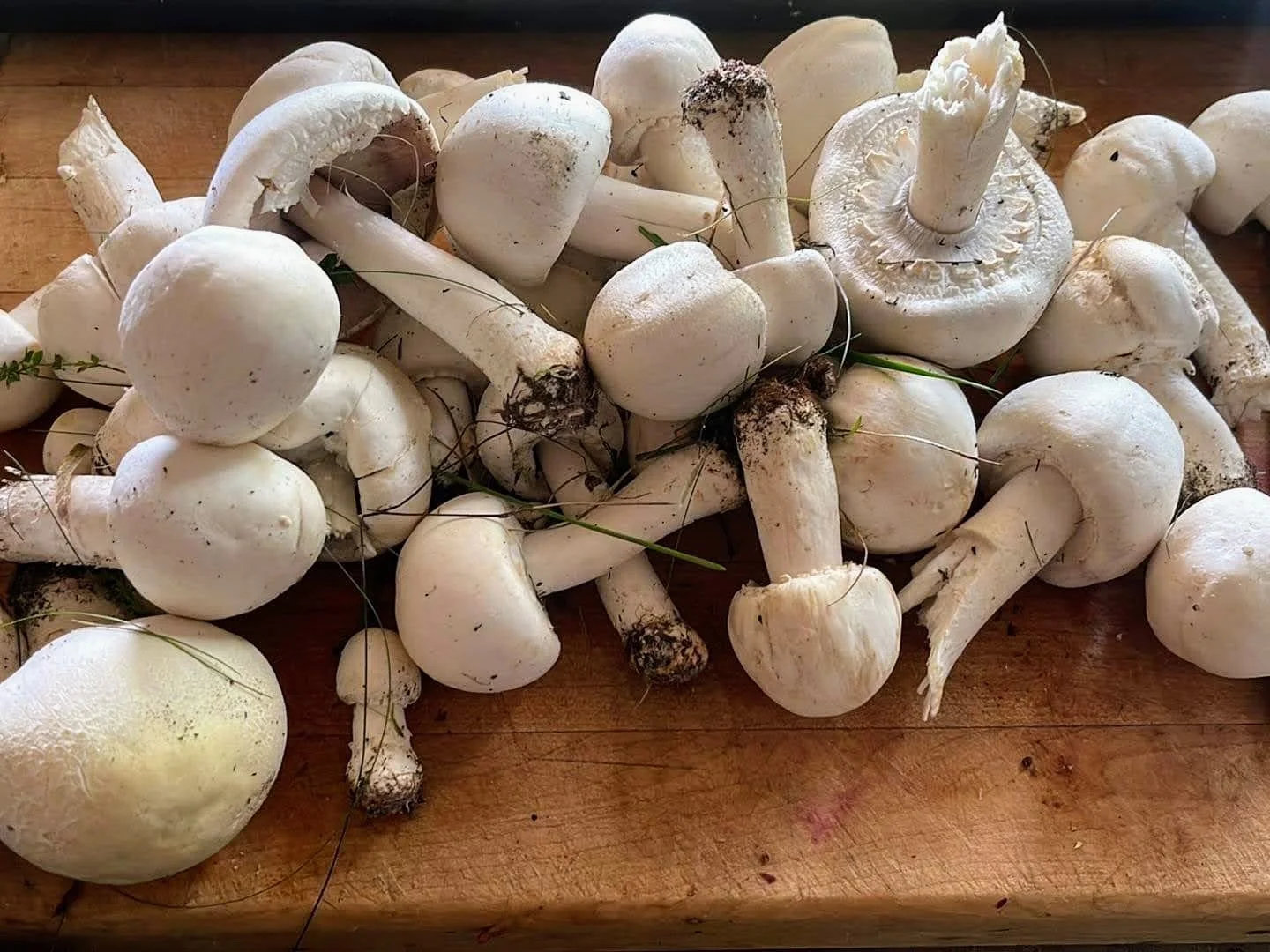How to improve your health with 30 plants a week!
Tony Wright
I’m sure many of you will be familiar with the benefits of a plant based diet. More specific though is the wholefood plant based diet, that word ‘wholefood’ makes all the difference. By eating less ultra processed foods and more wholefoods you are going to experience better health outcomes. By the way, plant based doesn’t necessarily mean vegan, it’s that the majority of your food is from plants.
In future blogs we can look at the benefits of specific areas such as fermented foods, is soy your friend, supplements, protein, fasting etc. But in this brief blog we are going to take a dive down into the benefits of eating 30 plants a week!
If you have time I would seriously recommend you read up on the following researchers.
Gut Microbiome Diversity - Tim Spector’s work (especially with twins) has seen him lead the way on the gut microbiome. Essentially people with identical genetics can be shown to have differing health outcomes based on lifestyle choices- https://tim-spector.co.uk/
Longevity and importantly functional long life - Dan Buettner found that there are pockets of the world where people are experiencing longer healthier lives, he called them bluezones. In summary they were naturally active, sociable, had purpose and ate wholefood, predominantly plant based foods. https://www.bluezones.com/dan-buettner/
wholewheat (no egg) pancakes, berries, soy yoghurt
Decreased Risks of Serious Disease or better health outcomes - Michael Greger is the guru, but you may find it hard to see beyond his verbosity. It’s all based on a passion for research and peer reviewing health studies. https://nutritionfacts.org/ .
Easier to digest (pun intended) - the work by Dr. Alan Desmond https://www.alandesmond.com/ He is a gastroenterologist that fully understands the links between certain types of food and health outcomes.
A good description of the human microbiome https://www.hsph.harvard.edu/nutritionsource/microbiome/
The Gut Microbiome?
Imagine, inside your body are trillions of micro organisms that form the human microbiota. The majority live in the small and large intestines and perform vital roles especially in digesting/ metabolising food, increasing immunity (and many other functions). Some research now points to our microbiomes as an essential if not ‘the’ essential organ. Research is still gathering pace but we know one of the keys to good health is to maintain a diversity of microbiata. By improving and diversifying your diet you improve your microbiome.
So - what’s this 30 plants idea?
The basic concept is that by increasing the diversity of plants you increase the diversity of bacteria in your gut meaning you are producing more of the essential chemicals your body needs. There are also other benefits of diversity, for example spices; research is now confirming the health benefits of spice blends in India. We know that for example turmeric and ginger have anti inflammatory properties and coriander has antibacterial properties, cardamon can lower blood pressure. Tim Spector’s work found that the diversity of fibre had a much more beneficial effect on digestion than the quantity of fibre. All the different microbes in your gut eat different types of dietary fibre which is why diversity is really important. By having the same apples, strawberries and bananas every single day you may be feeding, let’s say, a million types of microbes but actually you’re then missing out on feeding millions of others”
So why would you be interested - a few examples below but there are many many more
General Health - In my own case, the evidential links between plant based eating and diversity for warding off infections (70% of your immune system lives in your gut) and combating age-related and serious diseases (such as diabetes, heart disease, cancers etc) is enough to keep me on track.
Pelvic Floor - As a specific example if you are one of many people who experience pelvic floor issues then you will know that decreasing inflammation and decreasing any strain in your bowels are beneficial, this can be improved with a healthy gut microbiome.
Mental Health - Research shows the oxytocin, dopamine, serotonin (the happy chemical), endorphins are all neurotransmitters that control stress, anxiety, mood and behaviour whose production by the body is mediated by the bugs in your gut.
Serotonin regulates appetite, sleep, memory, learning and our moods. If our ‘brain gut’ is fed unhealthy foods this can cause inflammation in the gut which can lead to depression, anxiety and a host of other emotional symptoms.
How To Get Started?
The key is incorporating as much variety as possible: at least 30 different plants a week – including nuts, seeds, pulses, whole grains, fruits and vegetables
foraged field mushrooms
Why 30?
Tim Spector’s work showed that there is this link between the food we eat, our microbes and our immune systems. 30 plants a week means you get a full range of nutritional benefits from a whole host of different plants. This is key to having a good balance of ‘good’ bacteria in the biome, which in turn helps all facets of your health, including helping to fight disease and infection, as well as properly digesting food and absorbing nutrients and energy. The research showed that increasing diversity beyond 30 plants while not harmful, didn’t increase the diversity of bacteria.
How easy is it to eat 30 plant foods a week?
Easier than you think. Just get into the mindset of diversity over quantity. You can include any plant sources such as nuts, seeds, herbs, spices as well as fruit and vegetables. A salad bowl with a side such as falafels could easily include 8 plants. A berry/ fruit bowl could be 5 plus, a plant based pasta sauce made with lentils could again be 5 plus.
One of the key ways is to be more creative and open minded. For example, if i make a lentil dal, it might include lentils , garlic, onions, ginger, coconut, tomato, several spices so easily 10 different types and i could stir in spinach or coriander at the end and serve with wholewheat rotis or brown rice and i am at 12 plus in one meal!
dark leafy greens are so good for you, here with courgette bhajis, tomato sauce, fennel, rotis
For breakfast you could have oats (overnight or plain or porridge) 2 or three types of fruit and a premade topping. I will often lightly roast pumpkin seeds, sunflower seeds, almonds, hazelnuts then add dried fruit. If you had this with soy yoghurt you might have 9 + varieties of plant.
add seeds to your fruit bowl, pumpkin seeds are rich in antioxidants, iron, zinc and magnesium
Spices - learn a little about spices. I have a drawer full, but i wouldn’t be without cumin seed, coriander powder, paprika, turmeric, mustard seeds. chilli powder, garam masala.
widen your palate with spices
At weekends we might have a brunch, for example, fry Aleppo Chilli flakes,(which are not too hot, sweet and smoky), paprika, cumin seed, pan fry with onions, garlic, tofu, salt, pepper. Remove, fry mushrooms in the same pan. Remove, wilt spinach in the same pan. Serve with avocado and wholemeal toast. Lost count of plants ! 🙂
Buddha bowls are amazing, just use quinoa or tabouleh or frekeh as a base and add different roasted vegetables and chickpeas. If you batch up a tabouleh salad and roasted veg you can use them for different meal combinations over a few days. E.g pasta with roasted veg. Try this - slice cauliflower into big ‘steaks’ brush with tahini and roast turning once, the flavour is incredible..
Although spices, herbs, seeds etc all count, I find it’s easy to eat 30 a week plus spices. But for now include spices and you will have no problem.
Organic vs non
I have been plant based for several years and continue to try and work out what foods are right for me. Interestingly it was taken to another level when I visited Sri Lanka. I continued to eat plant based foods entirely, but after a week or so I felt even better than normal (maybe it was the surfing or the weather!) I think that most of what I was eating was grown locally, most likely used less chemicals to grow (so naturally organic) and was diverse. I eat many similar foods here in the UK (dals, rotis, fruits) but none are quite as fresh and diverse as they are there. My point is that I believe the less processing and agri chemicals in your food, the better for you. Like many, i’m guilty of not eating seasonally enough, but this can be a great way to increase food diversity and reduce food miles. Try to seek out local organic producers and eat what they grow.
some of the food i made on a cookery course in Sri Lanka - variety is just natural there
To Sum Up
I have attempted to summarise the current thinking around the 30 plant methodology. If this is totally different to how you eat now and it’s a direction you would like to try, take it easy and allow your body to adapt slowly. Think about it as a long term project, something that will change your outcomes as you go through the rest of your life.
Also, in parallel, take the time to read up on some of the sources listed above. Dr Alan Desmond and Tim Spector are good starting points. Also take a look at Gemma Newman’s site https://gemmanewman.com/.
I hope you have found this interesting, if you have any comments or would like some help with plant based food ideas you can get hold of me on tony@rachhall.com
Below, for reference are a few ideas around plant foods with added benefits:
Polyphenols - gut boosting - about 90% skip through your small intestine to join our community of gut microbes in the large intestine and include
coffee, green tea, berries, flaxseeds, hazelnuts, extra virgin olive oil, broccoli, red onion, and herbs and spices, such as cinnamon, ginger and mint, red wine and dark chocolate.
Get 30g fibre a day
whole grains,like wholemeal bread, quinoa or brown pasta
most fruit vegetables.
Foods to Reduce Inflammation
There are very specific anti-inflammatory foods that you can include in your diet. As well as foods containing protein and fiber, that when combined help your body decrease spikes in blood sugar that prevent insulin spikes leading to inflammation. Turmeric, especially its most compound form curcumin
Cinnamon
Fiber foods - Oatmeal, whole grains, beans, apples, berries, broccoli, nuts, avocado, greens
Healthy fats & omega 3s- olive oil, avocado, nuts, coconut oil
Foods to promote healthy bacteria
When choosing foods to support your gut microbiome this can be done with direct methods with foods that are considered probiotics, which have live cultures in them or are fermented as well as with foods like soluble fibre that nourish the good bacteria.
Probiotics - yogurt, kefir, sauerkraut, kimchi, miso, tempeh, sourdough bread, probiotics should be eaten regularly for benefit as they transit through the gut
Homemade kimchi and other fermented foods are incredibly easy (and cheap) to make at home
Soluble fiber - oatmeal, brown rice, onion, garlic, apples, peas, psyllium, carrots
Prebiotics “are the food that feeds our gut microbes
Good sources include almonds and cashews , prunes, dates or dried apricots. Try to include more grains and legumes in your day, switching rice or pasta to freekeh, quinoa, buckwheat or spelt or add legumes into sauces.” Good vegetable sources include artichokes, asparagus, beetroot, chicory, fennel, garlic and leeks, as well as legumes. Chickpeas are great and can be added to sauces, cakes and salads.










